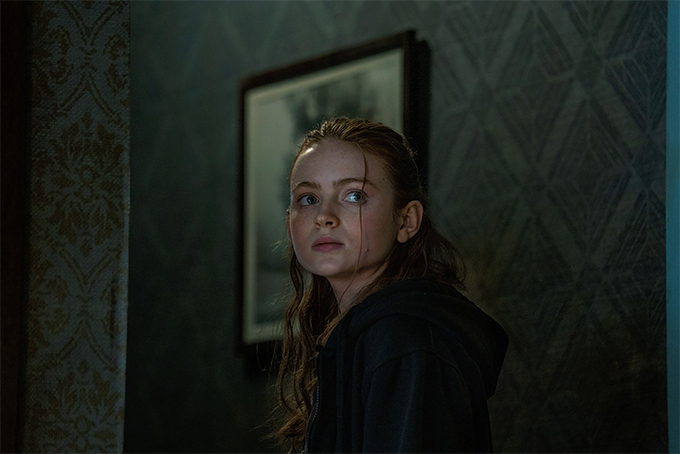Content warning: This story contains themes of disordered eating.
Binge-eating can sometimes make you feel like you’re living a double life. In the day, you’re a well-functioning human being with a fairly normal relationship with food. You go on the same diets as everyone else, and make throwaway comments about being “extra hungry” because you’re on your period. Your enthusiasm for the office lunch order is a tad higher than most of your colleagues’, but it wouldn’t raise any eyebrows. You like the occasional midnight snack.
The gasping symphony of sobs that filled the movie theatre by the time the credits rolled for The Whale made it clear beyond a doubt that this was a movie that had penetrated many hearts. I, too, held one of those bleeding hearts—barely staggering out of the cinema post-cry.
Between Brendan Fraser’s heart-wrenching performance as the loveable and pitiful Charlie (an English professor suffering from severe obesity while trying desperately to reconnect with his teenage daughter), the film’s stunning cinematography, and a haunting musical score that swelled with the ebb and flow of every emotion, The Whale, is, in itself, a sheer work of art.

When we meet Charlie, we quickly learn a few key things about him. He loves reading literary essays, he is a sweet, kind and funny guy, and he’s dying. Given the physical circumstances Charlie is in (he can hardly stand up on his own without the help of a walker), seeing him binge-eat for the first time should not be a surprising thing to witness.
Still, watching Charlie take a messy, primal bite of fried chicken knocks the wind out of me. I watch glassily as an instant calm spreads across his face. Seconds ago, he was gasping, weeping, learning about his impending death.
The vacant look that falls over his eyes as he eats fills me with horror, dread, and worst of all, deep understanding. I know that look—the world around him has gone quiet. For the little while that he is eating, he is safe.
I have vivid memories of staying up till the late hours of the night, nervously waiting for a takeout order to arrive. I’m not hungry–not physically, at least—but I can barely wait to take my first bite. Without fail, it is numbing. I feel free of the anxiety that was plaguing me through the day, and lifted from the depressive episode that had been blanketing my mood.
“I’ve binged during depressive episodes when I didn’t feel like leaving my bed, but I’ve also done it when nothing in my life seemed wrong”
By the time I have pushed through the physical discomfort of a straining stomach to get to the final bite, red-hot shame has flooded my brain. What I’ve just done is horrific—gorging myself on food I didn’t really want and shouldn’t be eating. On paper, it makes no sense. It’s an uncomfortable, unhealthy and expensive habit.
It makes me feel bad about myself like few other things can. And yet, the grand contradiction of it all is that binge-eating provides me a comfort that nothing else has been able to.
It’s what makes it so easy for me to see through Charlie’s self-sabotaging whirlpool from the minute he takes his first bite on-screen. As much pain as he is in—and as hard as he may want to fight the physical disabilities that his damaged relationship with food has inflicted on him—he can’t escape his eating disorder, because he has nothing else to hold onto. His binge-eating episodes, while actively putting him in an early grave, also happen to be the metaphorical rafts keeping him above water.

It’s difficult, as a viewer, not to feel sympathy for Charlie. It may also be difficult for some to understand why he hasn’t sought help for his conditions. Watching Charlie clutch to his final coping mechanism even as it continuously brings him closer to the end he so deeply fears, it becomes clear that the shame he feels for allowing himself to get to this point outweighs the hope that his life could ever turn around.
Amongst all the eating disorders we have become aware of as a society, binge-eating carries the biggest burden of shame. This rings particularly true if you live in a bigger body, which comes with its own heavy gamut of unwarranted assumptions and indignities.
I’ve struggled with binge-eating since I was 12 or 13. It makes its presence known through sporadic bouts, but I know it’s always there, just under the surface. I’ve binged during depressive episodes when I didn’t feel like leaving my bed, but I’ve also done it when nothing in my life seemed wrong. The one consistency across every binge-eating episode I’ve dealt with is that it’s always been my biggest secret.
So, now, in the spirit of Charlie’s courage and kindness, I’m setting my shame free. I still don’t know what the cure to this disorder is—what I do know, however, is that struggling with binge-eating does not make you deserving of shame, guilt and self-loathing. You are still beautiful, smart and kind—and there is time for you to heal yet.
Learn more about binge-eating disorder and seek help here.





